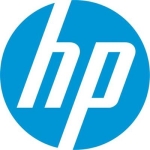What is our primary use case?
We have been reselling Bitdefender for over twelve years now. Our primary use case for this solution is for a microfinance bank. They wanted a solution that can deliver security in the cloud. In fact, there was no other antivirus partner or manufacturer that has enterprise security that is hosted in the cloud. When they came to us, we told them that we have a solution that can do that, which is Bitdefender GravityZone. We told them exactly what it does:
- You don't need to buy a separate server to deploy it, which is major savings for the bank.
- It is hosted in the cloud. Because it is hosted in the cloud, you can deploy it in the cloud and you can monitor it from anywhere in the world, whether you are in the office or not. It gives you the stability to know which clients have been updated, which clients have not been updated, which ones have been attacked, and which endpoints have been attacked.
- You can generate your report. You don't necessarily have to be in the office to have the network working.
Now, the good thing also about that, apart from the savings and the ability to have the stability of your reports no matter where you are, is the fact that at any point in time, you can have a central policy setting. With that, you can set your policy centrally and from there you push to all your clients. Then also, you can generate your report. You don't necessarily have to be in the office to have the network working.
What happens is that a desktop will be configured to be what they call a relay server. Then the relay server within your line goes to Bitdefender.com to pick up updates and every client on your network gets updates from the local system. What that means is that it reduces your internet calls. They were happy with that.
The client also wanted to know what happens when they're out of office. I explained that if you're out of the office, once you're connected to the internet, using anything the system goes straight to Bitdefender.com. With the first attempt to view the local server, if it's unable to see the local server, then it takes the second route, which is going to Bitdefender.com. They were very happy about that. They asked all about the issue of memory and performance on systems. I explained that the performance is very light because if it's light, the overhead on the systems is also very low. They were also satisfied with that.
They asked me how to install on the server and not the desktop and I told them that it's exactly the same as a critical file that you push to boot the server and the desktop. The system is intelligent enough to know which operating system is running and it will handle that.
Lastly, they asked what happens if they have an existing antivirus. Bitdefender has the ability to automatically uninstall any existing antivirus but we can't make any change on your registry.
We helped them to do a POC, they were happy with it and after that, they purchased a license of around 2,500 users for two years.
How has it helped my organization?
Bitdefender has improved my organization in the way that it has grown our revenue over the years. We have more clients that have signed on Bitdefender GravityZone. Then we have clients who are also migrating from other antivirus solutions to GravityZone because of the ease of use, ease of installation and the fact that it can be deployed in the cloud and the same software; you can actually install it on other servers or workstations. It automatically knows what it's protecting.
Most importantly, we've also had very good support from Bitdefender. Any time you get to Bitdefender support with any issue, their response has been very helpful.
What is most valuable?
The feature that I've found most valuable is the ability to configure updates to be hourly. Only very few antiviruses can do that. You can be protected from a wide range of malware because it can do hourly updates. We haven't heard of another solution that can do this.
What needs improvement?
The pricing should be improved. The user interface has been improved on a yearly basis. The key issue is that they need to look at their pricing.
Bitdefender is very productive because since we started selling Bitdefender for the past ten years, we've had almost about six different revisions. Every year and every six months there are improvements in their products, based on feedback, customer needs, changes in technology, and so on.
For example, people were talking about encryption, so today you have GravityZone that has the ability to perform disc encryption. Disc encryption is done to ensure that your disc isn't attacked.
Clients were requesting for endpoint detection EDR, which right now they have been able to incorporate. At any point in time, they have always been improving.
Every six months there are new features. Every three months new features come in to address the needs of these customers. Bitdefender has consistently been very pro-active in virtually all the places we've installed. We ask our clients if they have any issues with the product. All of them say that it's very easy to install and to understand and that they don't have any problems with it. Any global requirements are constantly incorporated. Our clients want to see some intelligence built into reporting but they saw that most antivirus solutions don't do analytics. Bitdefender has acquired a new company that does analytics so the analytics software gets input from the antivirus then it is able to correlate and give you the analytics that are required.
What do I think about the stability of the solution?
Once we install it properly, it is stable.
What do I think about the scalability of the solution?
We don't have any issues with the scalability.
In terms of the number of users that use this solution, it depends on the client. One of our clients has a 2,500 user license. We have another one using an over 4,000 user license. We have some using a 5 user license.
Usually, the roles of the people who manage it within the organization are on the security team. It's usually people in the network administration, working with IT security
How are customer service and technical support?
Bitdefender has very good technical support because all you need to do is send an email to support and in less than five minutes somebody is online. You can also chat with them if you need to chat. They have the option to email. If you are in a remote area, they have telephonic support as well.
Which solution did I use previously and why did I switch?
We have been using Bitdefender for a long time. We've never used any other antivirus. Other customers have moved from other platforms to Bitdefender because of the possibility of the cloud solution.
They also choose Bitdefender because it has competitive pricing compared to solutions like McAfee and Symantec. They have local support and it's easy to use.
How was the initial setup?
The initial setup is very straightforward and easy. All you need to do is set up your account in Bitdefender Central. Once you open up your accounts, an email is sent to you, you accept the email, and set up your password then it gives you space on the cloud and that's all. It's good to go. The next thing is to link it to your active directory. Once you link it to the active directory, you can see all the users and you just send them an email and they will click and once they click, that's all. It's very easy.
Usually, deployments can take up to six months but can vary from two days to three months as well. It depends on one, the environment in the sense that, if for example, we are deploying to an organization with about 9,000 users, and they are distributed across a large geographical location, they cannot do an antivirus deployment immediately. They need to do what is called a phased implementation. Usually, phases are done off work periods, either in the night or weekends. The reason is that we don't want anything that would disrupt operations.
Two, usually before we do implementation we do what they call a checklist. We need to know which systems they have if they're Windows, Android or IOS. We want to know which versions because not all versions are supported at any point in time. If they're not supported, we need to do an upgrade on these systems before implementations start.
Thirdly, we look at the memory and what resources they have. Usually, there is what we call minimum and there's recommended. We go for recommended in terms of specification. Once the recommended is done, we look at the structure of their active directory then after that, we sit down with the IT team who are going to be part of the implementation and take them through the product portfolio of what we want to implement. We show them all the features, show them the various implementation methodologies and configuration options. We show them how updates are done. We now move farther to tell them some of the other requirements like some ports that must be left open in each of these systems at the routers so that the packages can pass through, they are not considered as malicious.
If you have any other security software running in your environment, you'll need to create exceptions for the Bitdefender package. After that, we start implementation with one or two systems then we allow them to then shadow us and do it on their own. If there are issues, we show them where the mistake was made. We continue to give them offline support or on-site support depending on the contract they have signed with us or with our resellers.
Ordinarily, the number of staff we require for deployment is a function of how large the organization is. On average, it's a maximum of five people because for very large organizations we have to do phased implementations and depending on which implementation methodology is chosen, whether it's going to be on-prem or cloud. If it's cloud, it's very simple. Somebody just logs on to the computer and begins to deploy very easily. Just control the systems and do the installation.
What about the implementation team?
We're a value-added distributor. We have technical expertise in-house, we give resellers the options to either deploy or we deploy on their behalf. There are some resellers who don't have deployment abilities, there are some resellers who have deployment abilities, and there are some users who have deployment abilities, there are some users who don't have deployment skills. It depends on the scenario. If a user wants to do the deployment themselves it's fine but if they run into a problem during installation, we are going to charge them for the installation. We usually draw a line between installation issues and support issues especially for new clients because some clients want to install it themselves then in the course of the installation, they don't install properly and they tell us it's a support issue.
What's my experience with pricing, setup cost, and licensing?
The licensing cost is on a monthly basis when you're doing the MSP model. MSP is a managed security service model. If you're doing the regular one year license, the licensing is based on what we call, a licensing band, so you get the minimum. The minimum is a three-user license. The pricing depends on the nature of the customer's environment, the number of users, and the infrastructure the customer has.
For example, if you have Microsoft Exchange in your environment and you want to protect it then you have to take a different option because you have the options of GravityZone business, you have the GravityZone Advance then you have the GravityZone Enterprise. It depends on the function of your infrastructure. Once we are able to know the infrastructure a customer has then we'll be able to come up with the right option.
There are additional costs apart from the initial licensing fee. The additional costs will come from things like the local support of the partner. If you're looking for on-site support then that would be an additional cost. They offer free offsite support, like telephonic and email support.
Which other solutions did I evaluate?
We evaluated all other solutions like Symantec and McAfee which has no local support. We evaluated ESET but their rating was not good. We evaluated Kaspersky but Kaspersky required many resources.
What other advice do I have?
My advice to somebody considering this solution would be to one, make sure that you get the exact model of the product you're looking for based on your environment. Two, you must ensure that you meet the minimum requirements because for Bitdefender if you don't meet the minimum requirements, it will not install. It will not install and if it does not install you will never know where the problem is coming from.
I would rate Bitdefender a ten out of ten.
Disclosure: My company has a business relationship with this vendor other than being a customer: Reseller.
















